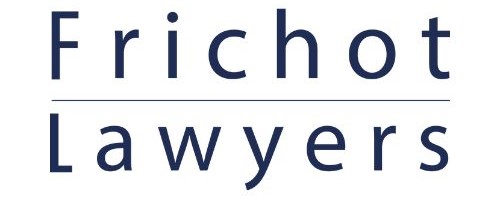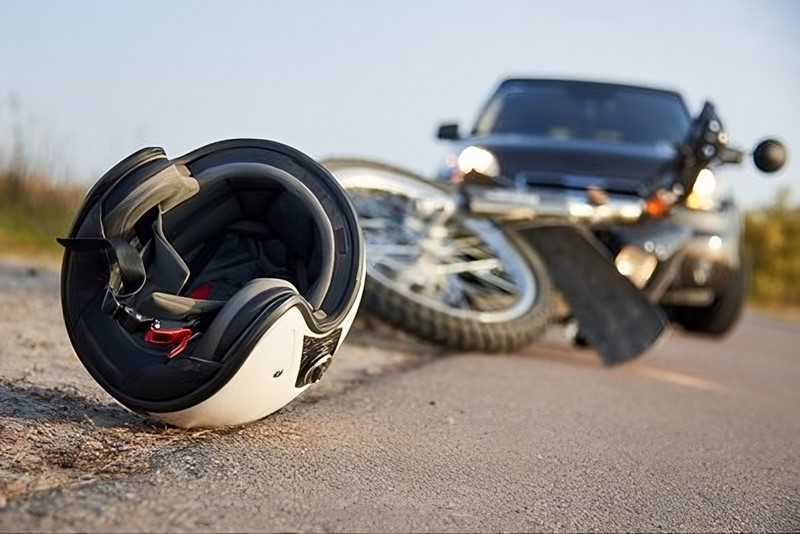At Frichot Lawyers we specialise in representing those injured as a result of accidents on the road in WA. We have extensive experience in dealing with the Insurance Commission
of Western Australia (ICWA), and we understand the physical, emotional and financial strain caused by an accident.
Our Senior Lawyers are skilled in helping injured parties navigate the complex claim system, ensuring that they receive the support that they need during their rehabilitation.
This forms part of our commitment to preparing, presenting and negotiating the best possible outcome for our clients.
We work on a ‘no win no fee basis’ and offer free ‘no-obligation’ Initial Consultations.
Below is a brief guide to the claims system in WA, and what we do.
WHO CAN CLAIM?
Anyone injured as a result of the ‘negligent’ driving of a motor vehicle, including but not limited to:
- Drivers and passengers of vehicles, injured due to the fault of someone else, whether full or partial, including in the case of a passenger, the fault of the driver of the vehicle which they were travelling in;
- Pedestrians injured as a result of the fault of someone else, whether full or partial;
- Motorcyclists and cyclists injured as a result of the fault of someone else, whether full or partial. This includes, for example, those injured as a result of someone opening a car door into the path of an oncoming motorcyclist or cyclist;
- Dependants of a person fatally injured as a result of the fault of someone else, whether full or partial;
- Loved ones of a person fatally injured as a result of the fault of someone else, whether full or partial, who suffer from mental harm as a result; In certain circumstances, those catastrophically injured (including spinal injuries, traumatic brain injuries, multiple amputations, severe burns and permanent traumatic blindness) who cannot demonstrate the fault of someone else for an accident, as part of the Catastrophic Injuries Support (CIS) Scheme.
WHO SHOULD A CLAIM BE MADE TO?
The ICWA is the compulsory third party insurer to Western Australian drivers and registered vehicles. When purchasing vehicle registration, a compulsory policy of insurance is created by the owner of the vehicle for any liability, such as injury or death caused by the driving of that vehicle.
In certain circumstances owners and drivers of vehicles may be personally liable, due to a breach of warranty. This is common where vehicles are ‘un-roadworthy,’ the driver is unlicensed to drive or was under the influence. However, it is the usual practice for ICWA to deal with the claim and seek any recovery from the owner or driver later.
The Insurance Commission of Western Australia Act 1986 and the Motor Vehicle (Third Party Insurance) Act 1943 guide ICWA’s operations. Where an accident is the fault of a driver of a motor vehicle registered in another State or Territory, it is recommended that legal advice is sought straight away, as any injury claim may need to be submitted to the relevant insurer in that State or Territory.
HOW DO I SUBMIT A CLAIM?
If you were the driver of a vehicle involved in an accident, you must report when the incident occurred on a road or any place commonly used by the public, e.g. carparks; and
-
- the incident resulted in bodily harm to any person; or
- the total value of property damaged to all involved parties exceeds $3,000.00; or
- the owner or representative of any damaged property was not present.
This can be done using the ‘Online Crash Report’ facility at www.crashreport.com.au. This serves a dual purpose, as it notifies WA Police of the accident, in accordance with your legal duty to report and also puts ICWA on notice of the accident and the injuries of any party.
A ‘Notice of Intention to Make Claim Form’ should also be submitted to ICWA. ICWA, at this stage, will request that you sign a medical authority, permitting access to all of your medical documents, including potentially your pre accident history. ICWA will then investigate the issue of liability and provide a decision with respect to the claim.
Tips
- Ensure that as much information as possible is entered onto the ‘Online Crash Report’ and/ or ‘Notice of Intention to Make Claim Form.’ In particular, ensure that all of your injuries are reported.
- Make the claim as soon as possible, the Motor Vehicle (Third Party Insurance) Act 1943 provides for certain situations where ICWA can defend a claim on the grounds of late notification. If this happens, legal advice should be sought immediately.
- Where you make a claim without legal representation, it is important to understand that ICWA will request that you sign a medical authority which it will use to access your medical history. For those who are legally represented, the authority is provided to your lawyer.
HOW DOES ICWA DETERMINE LIABILITY?
ICWA will investigate liability and provide a determination.
You will be provided with a Claim number. Where liability is accepted, this Claim number should be provided to those providing your medical treatment moving forward, to enable all bills to be sent to ICWA.
It is possible that several defences to the claim may be raised by ICWA leading to the claim being rejected. The most common defence is where you have failed to establish that the accident was the fault or part fault of another party.
In certain circumstances, the value of a claim can be reduced if it is found that you have contributed to the extent of your loss. This is common in claims where there has been failure to wear a seatbelt, speeding, failure to keep a proper lookout for other road users, or where an injured party has knowingly got into a vehicle with an intoxicated driver. Where a claim is rejected or it is alleged that you have contributed in any way to the cause of an accident, it is strongly recommended that you seek legal advice.
Tips
- Determining fault is not always easy, and at law, translates to proving that the driver or owner of the vehicle was ‘negligent’. This requires establishing that a duty of care was owed, that duty was breached, and the breach caused the injured party to suffer loss and damage. If possible, photographs of an accident location, vehicle damage, details of witnesses, dash cam footage, repairer estimates and the like, should all be retained following an accident.
- If you are unsure of your right to claim following a motor vehicle accident, seek independent legal advice immediately.
WHAT CAN YOU CLAIM?
Compensation for loss and damage suffered can be claimed in accordance with several
categories, including but not limited to the following:
- Economic loss – loss of earning capacity where productive or likely to be productive of financial loss. You can claim for past and future economic loss where there is evidence of your loss, and it is supported medically. There is a cap of three times the full-time adult average weekly wage in WA;
- Medical expenses – past and future medical expenses ‘reasonably required’ on account of the injuries sustained in the accident;
- Rehabilitation and vocational services;
- Care and assistance – this includes both past and future assistance reasonably required as a result of the injuries sustained in the accident, to include personal care, domestic assistance, home maintenance and gardening, and transportation for example, and can be paid assistance or voluntary gratuitous assistance provided by family and friends. There is a threshold of around 200 hours of assistance required before a claim can be made, where the gratuitous assistance is provided by members of the same household or family;
- Travel and parking expenses;
- Medication;
- Equipment and medical aids such as walking aids;
- Home and transport adaptation;
- Case Management Services in certain cases;
- General Damages – lump sum compensation for pain, suffering and loss of amenities of life. Restrictions apply in relation to General Damages and it is strongly recommended that the assistance of a lawyer is sought in quantifying this element of your claim;
- In dependency claims, loss of dependency both financial and relating to services provided by the deceased, and funeral expenses.
Tips
- As the claim progresses you are entitled to request that ICWA makes advance payments towards your ongoing loss of earnings, in circumstances where you are in financial distress as a result of time off work caused by your injury.
- As the claim progresses you should, where possible, provide your treatment providers with your Claim number to bill ICWA for treatment, to ensure that your out of pocket expenses are kept to a minimum during your recovery and rehabilitation.
- If you receive an offer of settlement from ICWA, seek legal advice immediately. ICWA represents the interests of the party responsible for the accident and has its own panel of lawyers which provide legal advice, but neither ICWA nor its lawyers are able to provide you with independent legal advice.
- If you settle your ICWA claim without seeking independent legal advice, your claim will be settled based upon medical evidence which has been commissioned by ICWA only.
- Once you settle the claim, the claim is final and ICWA will stop paying for any medical treatment moving forward. This will become your responsibility. Your claim could be worth far more than the settlement offered, and legal advice should be sought.
At Frichot Lawyers, one of our Senior Lawyers can quickly assess any offer made to you by ICWA, based upon your medical reports and other evidence of loss. We can offer advice in relation to the fairness and reasonableness of any offer received. Based upon our past experience, we are confident that we will get you an increased settlement amount and ensure that all potential categories of your claim are considered and compensated where relevant.


